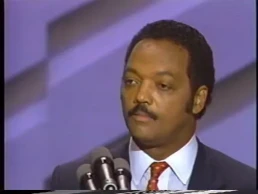The real foundation was that people escaped from cynicism into the elation, turmoil, rage, and passion of believing there is a better future that they could help make happen. But then why did such hope die shortly later?
By Michael Albert, Z Network
I read an article in 2008. It recounted miraculous events and dynamics from four decades earlier. It asked, what happened to all that? What happened to the passion, inspiration, and outrage? What prevented what the Sixties augured? Why did so many who sought Sixties revolution not persist in struggle? And why didn’t those who became involved in other later surges cumulatively attain much larger scale? Why didn’t the peoples’ ship come in?

Most people who seek to answer such questions study media and educational systems, coercive apparatuses, economies, polities, and households. They identify many obstacles to participation, passion, and insight. But we know those obstacles are what they are. We know they do what they do. And we know they will keep doing it until we replace them.
In contrast, some other obstacles that thwarted past greater success were factors over which activists had a say and activists still have a say, even when activism has been small and weak or, as right now, when activism has rapidly grown in size and strength. Those other obstacles could have been banished had we ourselves made different choices.
Many people left the Sixties because the Sixties left them. Later, many lost a fire which in 1968 was fueled by outrage at revealed hypocrisy, but when hypocrisy became old hat, could only have been sustained by belief, hope, and shared direction, so that later many didn’t even bother joining, or didn’t stay, due to lack of belief, hope, and shared direction.
Having been aroused to anger—often to incredible degrees of anger—by suddenly discovering the hypocrisy of our world, my Sixties generation was too often mishandled by our own movement. Indeed, I suppose you might say we manhandled ourselves.
Instead of nurturing members’ passion and enriching it, instead of serving members’ needs and fulfilling them, instead of empowering members’ aspirations and making them steadily more confident, capable, and happier (all of which happened for most of those who stayed)—our movements, not out of malevolence but out of poor choices of structure and practice, all too often turned our passion to bitterness, narrowed our scope of solidarity and compassion, denied and ridiculed our needs, disempowered most members in their own lives and social engagements, and made too many members miserable, too often leading to burnout and permanent vacations from the cause.
The first problem to overcome, therefore, if new decades are to be more productive than past decades, is that our activism needs to retain members, to enrich the lives of members, and to make members steadily more committed, more militant, and more capable rather than the opposite—which has too often been to eat our own alive. We must realize that dealing with that problem—which is to say making our movements sticky rather than repulsive for its own members—is far far more important than what we endlessly hone and repeat our critiques of what is bad to the tenth decimal place, and then repetitively broadcast those critiques to the point of finally cementing hopelessness into people’s hearts, rather than desire into people’s souls.
And then, second, we also have to solve our vision problem. Thinking about ’68 was one of the ways I came to what are, I agree, my own nearly obsessive views about these matters. In the seventies I asked myself, “okay self, in 1968 France in particular went from somewhat active and disruptive to virtually tumultuous and very nearly revolutionary in a span of weeks. Everywhere there was questioning. Everywhere there was a spirit not only of angry resistance but also of effervescent desire. There was active, militant, creative pursuit of new aims, new goals. “Be reasonable, demand the impossible.” “All power to the imagination.” “To be free means to participate.” What the hell happened in just a few months, on campuses, in communities, in the streets, in homes?
Oversimplifying a little to make a point, I suggested to myself, “self, perhaps what happened is that millions of people who did not understand capitalism, patriarchy, racism, etc., suddenly understood it, and thus, based on this new knowledge, became revolutionary.” But then I thought, wait, if I am honest about it, that seems awfully unlikely, but, okay, let’s view the idea a chance. Let’s hypothesize that sudden enlightenment was the cause. After all, that would make our almost exclusive emphasis on constantly analyzing what is wrong, sensible. But if that was the cause, okay, why did it die a historical eye blink later? Are we to believe that people’s minds not only incredibly suddenly became far better informed, but then, also, just as quickly, reverted to ignorance? I said to myself, “self, that really is ridiculous. No mind fills and empties like that.” And I followed up, “self, what else could it be?” I thought more than a bit and decided it had to be that people went, incredibly quickly, from no hope to hope. Hope fueled the tumult. Later, hope died.
So the real foundation of massive upsurge wasn’t brilliant compelling new analyses of capitalism, patriarchy, racism, or authority that suddenly spread among folks—important as such analyses can be. The real foundation was that people who already knew a whole lot suddenly escaped the chains of believing there is no alternative. The real foundation was that people escaped from cynicism into the elation, turmoil, rage, and passion of believing there is a better future that they could help make happen. But then why did such hope die shortly later? Why didn’t our ship come in? Well, without going on and on, I thought it was mostly because our new sense of efficacy wasn’t very deep. Sixties hope was too often about charisma and boiling emotions that lacked sufficient reason and evidence to sustain itself.
If this was true about the Sixties (and about Greece similarly exploding in 2008) then five (or two) and a half decades later, the second obstacle to overcome if we are to increase longevity and intensity of involvement, is cynicism. More, our task is to do so in a way that won’t unravel. But doesn’t that mean we have to have a vision of a better future that is compelling, inspiring, able to inform today’s activism, and also able to sustain people having and holding a shared belief that it is worth their valuable time to participate?
My answer to the why question, and I think it is a very optimistic answer because it is within our power to act on it, is therefore that the Sixties movements didn’t win as much as their chants promised because they were horribly flawed—because we were horribly flawed. It was not just or even mainly that we were tricked or repressed into submission. It was mainly that we erred. We had plenty of courage. We got a lot right. But we also made some really poor choices. People today, in 2024 are again aroused, passionate, and have plenty of courage—but have a chance to do much much better.
From campus to campus and country to country people can choose to build movements that really do embody the seeds of the future in the present, movements that really do nurture, train and fulfill their members, movements that really do sustain involvement, expand commitment, and inspire unyielding but informed participation by virtue of their vision and the coherence and clarity of their methods. Demand ceasefire. Demand a world that no longer wars. Demand a world that no longer despoils its planet. Define anew justice, liberty, equity, and solidarity. Build new movements that don’t just surge, but also persist until victory. That will make today’s activism flow into tomorrow’s self managed participation. The seemingly impossible is actually well within today’s means. Revolution is an actionable item.
Recent Posts
Minneapolis: Organizing for the Protection of the Community
February 18, 2026
Take Action Now In speaking with residents in several parts of Minneapolis, beautiful stories of organizing on a block-by-block level emergedBy…
U.S. Sent a Rescue Plane For Boat Strike Survivors. It Took 45 Hours To Arrive.
February 17, 2026
Take Action Now In seas that could kill a person within an hour, it took nearly two days for a rescue plane to arrive.By Tomi McCluskey and Nick…
“Keep Hope Alive”: Remembering Rev. Jesse Jackson, Civil Rights Icon Who Twice Ran For President
February 17, 2026
Take Action Now “Our father was a servant leader — not only to our family, but to the oppressed, the voiceless, and the overlooked around the…
The Iranian Trap: Neither Military Action Nor Nuclear Negotiations Can Solve Trump’s (and Israel’s) Conundrum
February 16, 2026
Take Action Now After a failed regime-change strategy and an increasingly risky military buildup, the Trump administration turns back to nuclear…




